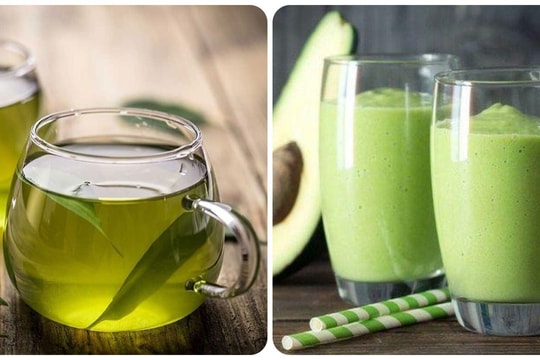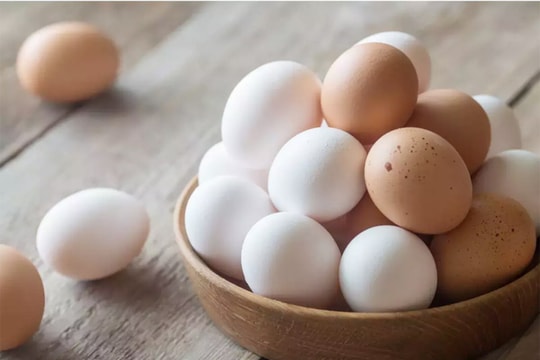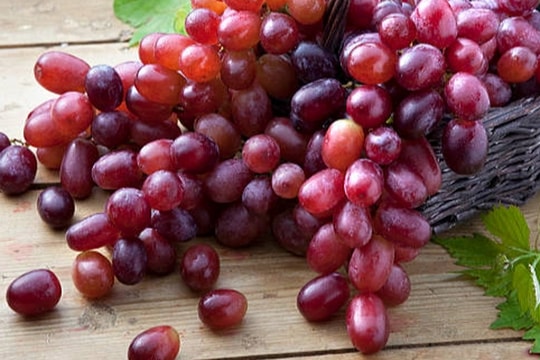Top 5 foods that help remove 'bad cholesterol' from the body
Cholesterol is a type of fat in the blood that is naturally produced by the body. It is also found in some common foods such as eggs, animal organs, shellfish, etc.
Our bodies need some cholesterol to function normally. But when there is a high level of cholesterol in the blood, it accelerates the process of atherosclerosis, plaque builds up in the artery walls, making the arteries narrower, making it difficult for blood to flow, and over time can cause a heart attack or stroke.
There are two types of cholesterol in the blood: high-density lipoprotein (HDL) cholesterol and low-density lipoprotein (LDL) cholesterol.
HDL cholesterol is "good cholesterol" because it helps remove "bad cholesterol" from the blood vessels so that blood can circulate easily.
LDL cholesterol is "bad cholesterol" because if there is too much, it will get stuck in the artery walls causing atherosclerosis. That is why LDL cholesterol is classified as the cause of dangerous cardiovascular diseases such as myocardial infarction, stroke...
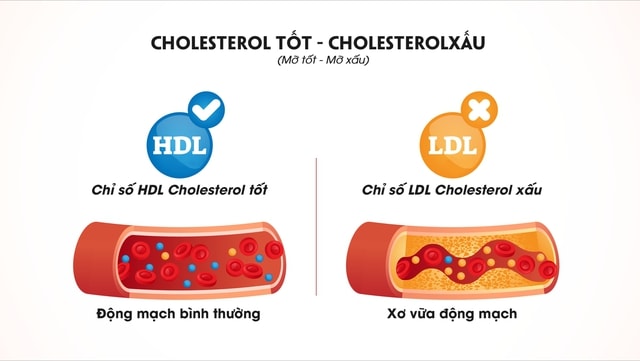
2. Does diet improve high cholesterol levels?
According to cardiovascular experts, most patients have high blood cholesterol due to unhealthy diet and lifestyle, which causes cholesterol to accumulate in the blood and affect the cardiovascular system.
To reduce high cholesterol levels, one of the first measures is to change your diet by following a balanced, healthy diet, prioritizing eating more foods of plant origin such as: vegetables, fruits, beans, whole grains, nuts... to help control cholesterol levels and help reduce the risk of heart disease.
Foods that can increase “bad cholesterol” levels, such as processed foods high in saturated fat and trans fat, should be limited. Consuming these foods promotes high cholesterol levels, especially “bad cholesterol.”
Saturated fats are animal fats found mainly in meats and dairy products. Trans fats are found in many foods, especially fast foods, processed foods, fried foods, etc.
According to MSc. Dr. Le Thi Hai, former Director of the Nutrition Consultation and Examination Center, National Institute of Nutrition, saturated fats and trans fats will increase "bad cholesterol" in the blood, promote coronary atherosclerosis and increase the risk of myocardial ischemia. Therefore, we need to minimize saturated fats and not eat foods containing trans fats.
Increase your intake of unsaturated fats, which are healthy fats that are good for the body, help improve blood cholesterol levels, and are beneficial for the cardiovascular system.
Food sources rich in healthy fats include oils such as: olive oil, peanut oil, soybean oil, sunflower oil; nuts, walnuts, avocados; fatty fish such as salmon, herring, mackerel, sardines, anchovies...
3. Some foods help reduce "bad cholesterol" in the body3.1. Oats
Oats are a great addition to a heart-healthy diet. Oats contain a type of soluble fiber called beta-glucan. Beta-glucan can slow down the passage of food through the intestines. As a result, carbohydrates are absorbed more slowly, leading to more stable blood sugar levels, and it can also remove cholesterol along with it.
Studies have found that beta-glucan in oats can reduce blood fats; reduce total blood cholesterol and "bad cholesterol". Thereby helping to reduce the risk of heart disease in people with mild high cholesterol.
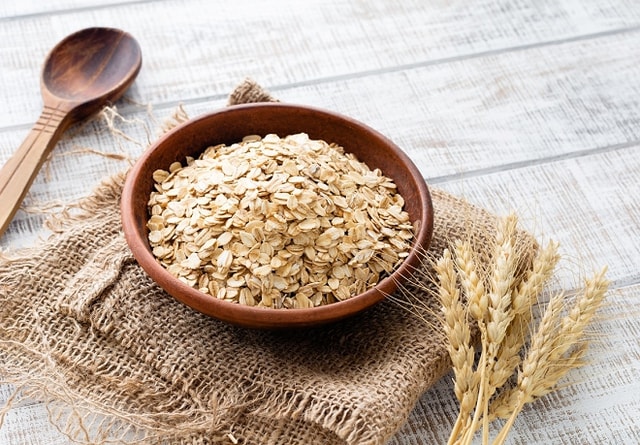
3.2. Soybeans
Some studies show that regularly eating soy products can help slightly reduce "bad cholesterol" and triglycerides.
Soybeans are one of the few nuts that contain high levels of protein. Soy protein contains no cholesterol and is low in saturated fat. In addition, the isoflavones in soybeans can inhibit the formation of plaque on the arterial wall, preventing atherosclerosis.
3.3. Berries
Berries such as blueberries, strawberries, raspberries, etc. are rich in antioxidants that help fight free radicals and prevent disease.
Consuming berries can also have a significant impact on heart health. Research has found that regularly eating berries helps reduce levels of “bad” cholesterol, blood pressure, weight, and inflammation in the body.
Additionally, berries contain several nutrients essential for a healthy heart, including fiber, vitamin C and vitamin K.
3.4. Tomatoes
Tomatoes are a fruit rich in vitamins and minerals, and contain a large amount of lycopene, which helps prevent free radicals and protect heart health.
Lycopene in tomatoes helps protect heart health by reducing levels of "bad cholesterol" LDL and increasing levels of good cholesterol HDL, preventing atherosclerosis...
The lycopene content of tomatoes depends on the variety and ripeness. The riper and redder the tomato, the more nutrients it contains, especially lycopene.
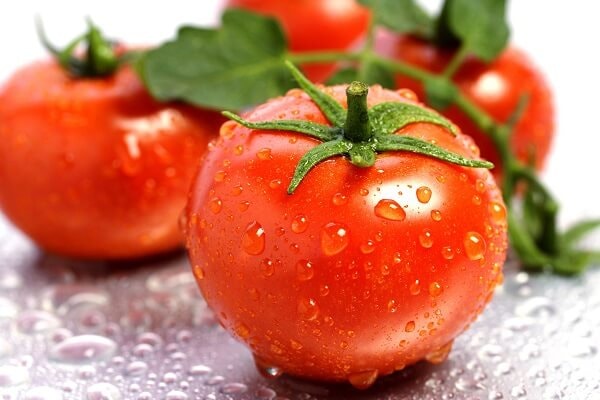
3.5. Salmon
Salmon is a great source of omega-3 fatty acids EPA and DHA, which have many health benefits, including: reducing inflammation, lowering blood pressure, reducing the risk of cancer, and improving the function of cells lining the arteries.
Eating salmon regularly can help protect heart health by increasing omega-3 fat levels, decreasing omega-6 fat levels, and lowering triglycerides. In fact, the American Heart Association recommends eating at least two servings of fish per week to keep your heart healthy.

.jpg)
